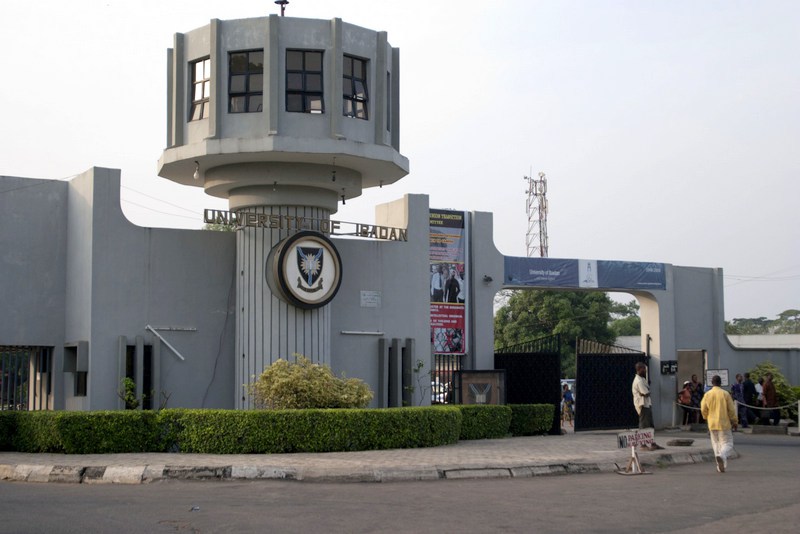This is the third and concluding part of this joint review of the two books in question. This part could not follow the first two parts because a death disrupted the normal flow of things. An apology to all readers!

 Common to the two books under review is the theme and story of implosion. In Onyeisi Chiemeke’s June 12 Election: The Campaign for Democracy and the Implosion of the Left, it was the breakdown of the Nigerian left in 1994 after what appeared a successful test of strength with the Nigerian establishment. In Segun Adeniyi’s Against the Run of Play, it is the theme and story of a breakdown within the Nigerian power elite as a result of a historical habit of breaking its own rules and having to be saved from itself by external interests to which it then openly expresses gratitude to its global embarrassment. What do we call a national elite that cannot organise elections without some external interests watching over or else things would go out of control?
Common to the two books under review is the theme and story of implosion. In Onyeisi Chiemeke’s June 12 Election: The Campaign for Democracy and the Implosion of the Left, it was the breakdown of the Nigerian left in 1994 after what appeared a successful test of strength with the Nigerian establishment. In Segun Adeniyi’s Against the Run of Play, it is the theme and story of a breakdown within the Nigerian power elite as a result of a historical habit of breaking its own rules and having to be saved from itself by external interests to which it then openly expresses gratitude to its global embarrassment. What do we call a national elite that cannot organise elections without some external interests watching over or else things would go out of control?
Both books, though published in 2016 and 2017 respectively, are thus united in reinforcing an alert about the aggregate strength and weaknesses of the Nigerian elite in terms of the answer to the question as to what might be the overarching analysis tying together the different infractions underpinning the defeat of Jonathan in 2015. That is a way of taking the defeat as an implosion because of the way Jonathan’s rule turned out a critique of the entire power elite and considering the instability the defeat could have brought about but for ‘humanitarian intervention’. Taken together then, the first alert is the reality of both the left and the right having problems with managing themselves internally. Difficulty in consistently successful self-management on the part of the left wing sends a more disturbing signal than crisis of self-management within the right wing. For, what might have happened that the experts in dialectical reasoning would not only fail to apply it to managing itself but also fail to achieve the task at hand? Implosion happens, even to the most tested left wing one can think about but should it have happened to the Nigerian left at the time it did?

Are they a collective force for merit?
Left or right, elite is about merit. Why has merit eluded the aggregate Nigerian elite? That is the left and right put together. Someone said the other day that any study of the development and management of oil and gas in Algeria would show that their Nigerian counterpart is lost. It could be a problematic statement because he did not recognise any intervening variables but he said while Algeria pumps gas to Europe through the Mediterranean, the Nigerian power elite has been flaring gas since God knows when, burning away not only dollars but also heightening climate change.
There is no continent in the world today whose elite have not settled account with the masses in terms of functional public transportation. This might still be problematic in a few poorer Asian countries but across Europe, much of Latin America and Asia and all of North America, this is the case. And they are taking it to higher levels all the time. This is not the case in Nigeria yet. The situation is nothing better in education and health services, confirmed in the fact that only those who cannot afford going out of the country are patronising them. Even Nigerian presidents don’t go to Nigerian hospitals. Nigerian elite speak of public-private or is it private-public partnership without any compunctions as if it is the most innocent phrase around, without any baggage.
As things are today, this comparatively lethargic elite has no left component exercising any ideological oversight on both the right wing and the country itself. That is the most dangerous gap in Nigerian politics today. Before this moment, the broad Nigerian left educated and guided the right and many informed rightists accepted their positions, especially on the management of the economy, particularly the question of the business model. The nature and intensity of the debates powered by the left between 1970 and 1991 is unbelievable in retrospect. Today, there is no hegemonic left platform with clear positions on the key issues of the time in a huge country as Nigeria.


This has been a marker for decades in Nigeria
What may be called the neoliberal wing of the rightist establishment has rapidly and successfully taken over the university education sector in education but they are nowhere near a merit system in university education. What might be the policy reconciling their takeover with the imperative for merit university system in Nigeria? There is no such position from the left. How might agriculture be approached within the context of the overwhelmed state and irresistible neoliberal pressures on it? Modernity has advanced to a point where new identities have to be recognised and understood in themselves. Such identities as ethnicity, religion, region, generation, territory have come of age in a way. Even before now, the question of whether you can dismantle the status quo without understanding them in terms of regional specificities was taken up. What exists in left politics today as the position on them?
How might Nigeria approach urban management is a key question in need of the most radical analysis. The cities remain the most contested of sites between capital and labour. How might the tension be responded to through an urban management strategy that is fair to all contending blocks? Nigeria has made basically no investment on energy. That is why, to take the funniest manifestation of that, there is that enmity between rainstorm and electricity supply throughout Nigeria. At the slightest sign of the wind heralding rains, electricity would go off across Nigeria. It is the strongest evidence of how fake the rhetoric of development has been. What is development without serious investment in energy? Energy is not a luxury. What is the position the left is posing on this for 21st century Nigeria and beyond? Climate change and its impacts is a coming catastrophe. It does not require the left to be in power before it can carry out a more humanistic conscientisation of the people on that as opposed to neoliberal profit based strategies and rhetoric on climate change. What is the position and mobilisation document on this from the left?

Water scarcity in the Niger Delta

Water scarcity in the north east
Even religion is a site the left needs to position itself in. All manner of charlatans have taken over the space, narcotising unsuspecting populace with magical problem solving claims. Some level of cleansing and infusion of basic honesty is required, a task which only the left can handle. What about leadership selection when certain offices are being contested for within Nigeria? Even without being members of a particular party, the left constellation can intervene in its leadership selection process, especially when it is the presidency, for instance. Such intervention can tilt the balance towards those that can be described as quality right wing individuals– melted to the point of being the anti-thesis of rough riders in power, cultured idealists capable of infecting everyone with elevated mindedness and, therefore, of nurturing society. We must come back to the idea of applying knowledge to statecraft or remain ruined. The left can be a force for enforcing a tradition of merit in leadership recruitment. And so on and so forth!
With a left force with clear positions on some of the key issues, the current degeneration in Nigeria might have been averted even if the left did not capture power. If Chiemeke’s book sufficiently annoys or provokes any reflexivity at all within the rump of the left, it would have achieved something crucial for national rebirth and the possibility of renaissance. The same thing is applicable to Adeniyi’s book. If it provokes reflexivity within the right wing, with particular reference to the reality of blowback or how our flirtations with what is not right will always come to haunt us, then it would have achieved a giant contribution to the possibility of the future. In other words, when properly read in context or when situated, the books convey more than their titles proclaim.




























